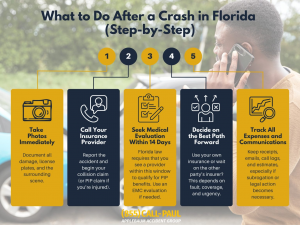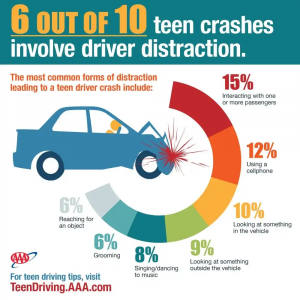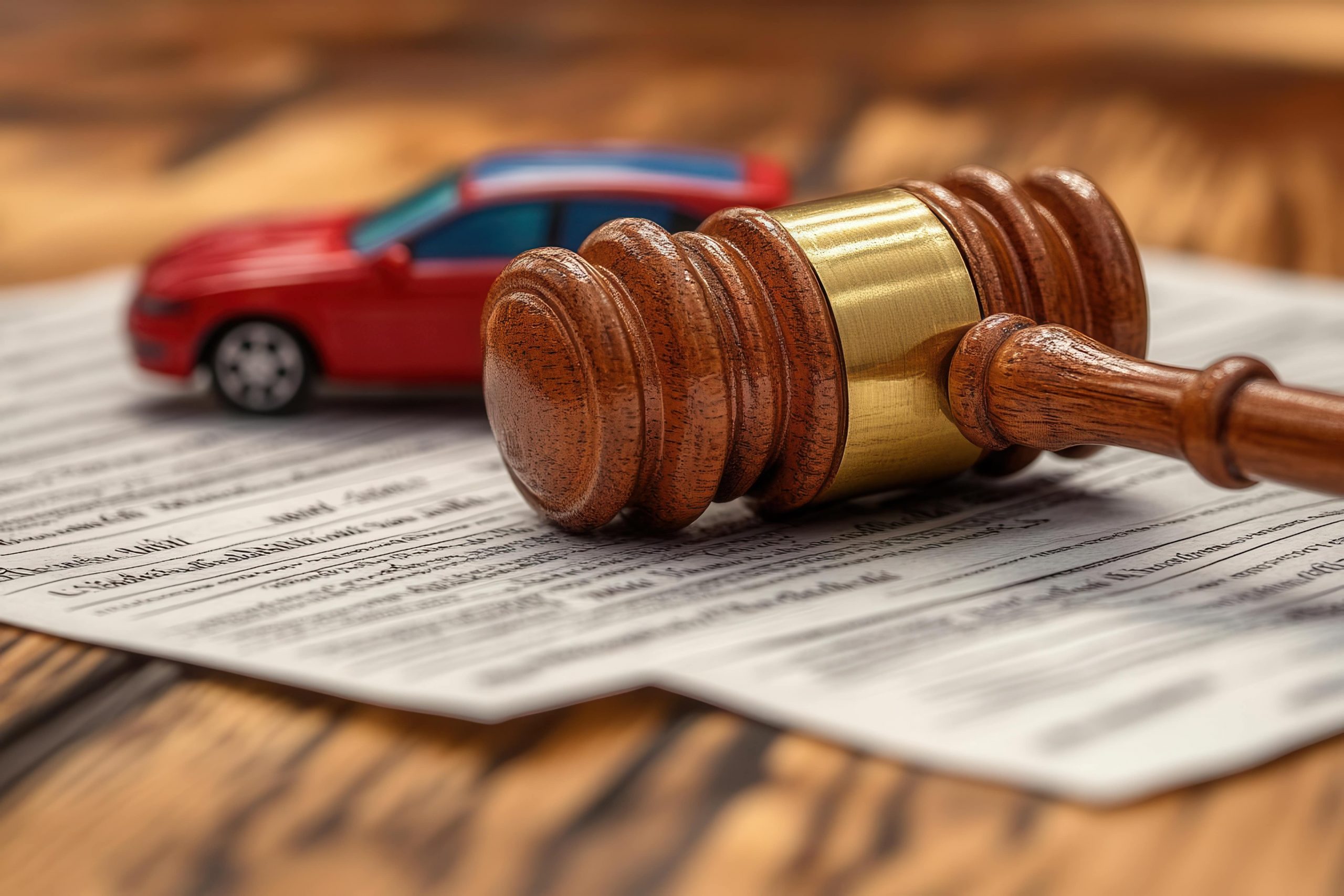If you’re involved in a Florida car accident involving an unlicensed teenage driver, whether you’re the driver, their parent, or the other party, your steps matter. Call the police, get medical care within 14 days, and document everything. Legal and financial outcomes depend on fault, permission, and coverage.
We’ll cover how fault is determined, how Florida’s insurance system treats these cases, and what legal risks or rights exist for each side. You’ll learn:
- What to do right after the crash (especially if someone fled)
- Who can be sued, and under what conditions
- How insurance works when the driver is unlicensed or unlisted
- What parents should expect if their child was behind the wheel
- What you can do if you’re the injured party trying to get compensated
Whether you’re protecting yourself, helping your teen, or pursuing damages after being hit, this guide gives you a clear path forward, backed by Florida law and real-world experience from Applebaum Accident Group.
What To Do Immediately After the Crash

Call 911. Even if no one appears seriously hurt, the safest option, legally and medically, is to involve law enforcement right away. In Florida, a crash involving injury or significant property damage must be reported. Beyond compliance, it creates an official record, which is critical if there are later disputes about who was at fault or who was driving.
While waiting, gather evidence. Take photos of the vehicles, the road, the damage, any visible injuries, and anything that might show how the crash happened. If someone refuses to share ID, gives false information, or leaves the scene, make note of it, even partial license plate numbers can help investigators.
Medical care should happen quickly, within 14 days at the latest. Florida’s Personal Injury Protection (PIP) benefits only activate if care is received within that window. Even if symptoms feel minor or delayed, documentation is everything.
See the article about Florida’s 14-day accident law for more on how this rule works, and what exceptions may apply.
Avoid admitting fault. On the roadside or in a phone call with an insurer, even offhanded remarks like “I didn’t see them” can be used to suggest partial responsibility. Let the facts, the report, the physical evidence, and witness statements, guide the outcome.
Is the Unlicensed Teen Automatically at Fault?
Driving without a valid license is a legal offense in Florida, but that alone doesn’t determine who caused an accident. Fault is based on conduct, not credentials. Investigators look at things like right of way, speed, distractions, and how each person acted just before the crash. If the teen ran a stop sign or was texting while driving, that’s what makes them liable, not just the fact that they weren’t legally allowed to drive.
That said, being unlicensed does carry serious consequences, even if the teen wasn’t at fault.
Driving Without a License Is a Crime
Florida law treats unlicensed driving as a criminal misdemeanor, and that applies to minors, too. A teen caught behind the wheel without a valid learner’s permit or license may face:
- A court appearance, usually with a parent or guardian
- Fines and court costs
- Potential community service hours
- Delays in getting a future license, sometimes until they turn 18 or even 21
- Points on a future record, which could lead to suspension before they ever qualify to drive legally
In more serious cases, like if someone was injured or property was significantly damaged, prosecutors may consider enhanced penalties or escalate the case to juvenile court.
Insurance Companies Flag Unlicensed Use
When an accident involves an unlicensed driver, insurance companies take notice. If the teen was driving a family member’s car, and wasn’t listed on the policy or didn’t have permission, the insurer may deny the claim or even cancel the policy. In some cases, the car owner may be considered to have allowed “negligent use” of the vehicle, especially if the teen had access to the keys or had driven before.
If the teen was driving someone else’s car, not a family member’s, and without consent, it may be treated as unauthorized use or vehicle theft, which adds another legal layer entirely.
Fault Still Requires Evidence
Even with the license issue in play, fault must still be proven. If the unlicensed driver was following the law and got hit by someone running a red light, the lack of a license doesn’t change liability. On the flip side, if they caused the crash, their licensing status may make it easier for the injured party to argue negligence, especially if the teen panicked, fled, or had no driving experience.
That’s why documentation matters. Without a police report, footage, or credible witnesses, the situation turns into a matter of one person’s word against another’s. Getting authorities involved early helps establish facts.
Can You Sue an Unlicensed Teenage Driver, or Their Parents?
When injuries occur, Florida law allows victims to seek compensation through insurance claims, and, in serious cases, through lawsuits.
A person who causes harm can be sued, even if they’re under 18. And in many situations, the legal and financial burden falls not just on the teen, but on the parent or vehicle owner.
Minors can be held accountable through a legal representative, typically a parent or guardian. And in civil court, their conduct is judged similarly to that of an adult, especially if they caused physical injury or property damage while operating a vehicle without permission or a valid license.
Florida’s Dangerous Instrumentality Doctrine
Florida’s Dangerous Instrumentality Doctrine extends liability to the person who owns the vehicle, regardless of whether they were driving it. If a parent knowingly allows their child to use the car, or fails to take reasonable steps to prevent access, they may be held financially responsible for any resulting harm. This liability increases when the teen’s use of the car was repeated, foreseeable, or left unchecked.
Even if a parent or owner says they didn’t give permission, courts often look at behavior over time. Did the teen have a history of driving the car? Did they have access to the keys? Were they regularly seen behind the wheel by neighbors or friends? These details carry weight. In past cases, text messages, GPS history, and social media posts have been used to show a consistent pattern of vehicle access, creating implied consent.
The Car Was Taken Without Consent?
When a vehicle is truly taken without permission, legal liability may shift. If the incident is classified as theft, the owner may not be held responsible. But that doesn’t close the door entirely. If the teen had taken the car before and the parent failed to act, or left keys accessible, the case can tip toward negligent supervision or entrustment, exposing the owner to civil claims.
Even if the vehicle owner refuses to cooperate with insurance or legal authorities, a claim can still move forward. Courts can compel participation, and insurers may proceed with investigation or settlement based on available evidence. Refusing to engage doesn’t block the legal process, it often just shifts control away from the family and toward outside attorneys or court systems.
Insurance Coverage: What’s Really Covered and What’s Not

Photo Source -> Florida Injury Blog & AAA
PIP Still Applies, Even When the Driver Is Unlicensed
Florida’s Personal Injury Protection (PIP) coverage pays for medical expenses and lost wages regardless of who was at fault. As long as treatment begins within 14 days, PIP benefits are available, even when the at-fault driver didn’t have a valid license.
The Driver Doesn’t Have Insurance?
Problems often arise when the driver wasn’t named on the vehicle’s insurance policy. Some carriers deny claims automatically, especially if the person driving the car had no permission or had been previously excluded. Still, insurance may apply if there’s a pattern of access or implied permission.
UM/UIM coverage becomes critical when the responsible driver has no insurance or not enough. If the unlicensed driver wasn’t covered, or fled the scene, this type of coverage can help. Even then, insurers may dispute whether the conditions qualify, so documentation and legal support matter.
How to Deal With Arbitration and Delays
In denied or disputed cases, insurers may push the case into arbitration, which is legally binding but often tilted in the insurer’s favor. This is a common tactic to avoid litigation. You’re not required to accept their process without review, legal counsel can intervene to push for better outcomes.
Unique Complications When a Teen Driver Is Unlicensed
An unlicensed teen’s involvement in a crash can impact more than just the claim. Premiums may increase, or the policy may be canceled. Parents may be forced to carry high-risk (SR-22) insurance afterward, depending on the severity of the crash and the driving history involved.
Even with PIP or liability coverage, insurers often slow-walk claims involving unlicensed teens. Adjusters may request repeated documentation, delay processing, or send mixed messages about what’s covered. Without legal guidance, these delays can cost time and out-of-pocket expenses.
Patterns of Access Create Legal Risk
If the teen drove the car regularly, even without a license, that pattern can be used to argue the parent allowed or tolerated the behavior. Courts look beyond what’s said to what’s been done over time. This can turn an isolated incident into a claim of gross negligence or implied consent.
When a Teen Truly Took the Car Without Consent
In cases where a teen took the car without permission, and it wasn’t part of a pattern, legal liability may be limited. But the context still matters: how were the keys stored? Was the teen previously warned? These facts influence whether the event is considered theft or negligence.
Should You Get a Lawyer?
Accidents involving unlicensed drivers, especially teens, carry more legal complexity. Lawyers can help navigate insurance denials, liability claims, arbitration, and lawsuits. They also reduce the pressure to handle negotiations alone.
What Lawyers Typically Charge
Most personal injury attorneys work on a contingency basis, meaning they only get paid if the case results in a settlement or court award. The typical percentage is around one-third, which may feel significant but often pays off in stronger recovery.
Legal Fees Pay for Themselves, Believe It
While some hesitate to involve a lawyer due to fees, most recover more, even after the attorney’s cut, than they would on their own. Insurers respond differently when lawyers are involved, especially when the facts are complicated or coverage is unclear.
Before You Move Forward, Remember This
Crashes involving unlicensed teens can unfold in unexpected ways. Here’s what to keep in mind as you move forward, regardless of your role in the incident.
Even if the crash seems minor, the report protects your position. It becomes a key piece of evidence for insurance adjusters and attorneys alike. In Florida, you turn to your own insurance policy for medical coverage. File the claim quickly, get treated within the 14-day window, and submit bills promptly.
Whether you’re seeking damages or defending against a claim, documentation matters. If fault is disputed, clear records, photos, reports, messages, will matter more than opinions.
Early offers are often low. If injuries are still being evaluated or fault is unclear, don’t accept a settlement before talking to a legal professional.
Medical records, prescriptions, repair estimates, correspondence with insurers, it all adds up. If the situation escalates, having everything organized can shape the outcome.
If you’re unsure what to do next, Applebaum Accident Group can connect you with attorneys who specialize in cases like these. Our network works closely with Florida medical providers and legal experts to support you through every stage of the claim process.
Take the First Step Toward Justice
If you’ve been in a car accident and need legal guidance, don’t wait. Call Applebaum Accident Group today, and we’ll connect you with the right attorney to handle your case.
📞 855-225-5728 | Request An Appointment
With Applebaum Accident Group, you get the support, expertise, and connections you need, without the hassle. Let us help you find the best legal representation in Florida.





